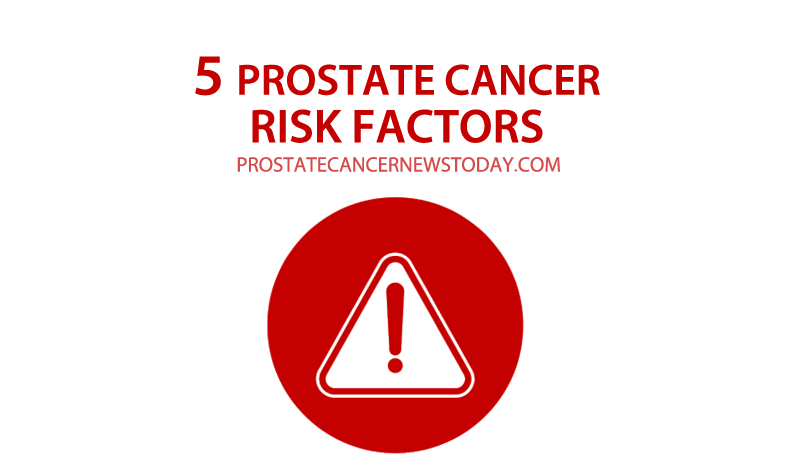“A risk factor is anything that affects your chance of getting a disease such as cancer. Different cancers have different risk factors. Some risk factors, like smoking, can be changed. Others, like a person’s age or family history, can’t be changed,” explains the American Cancer Society (ACS). “But risk factors don’t tell us everything. Many people with one or more risk factors never get cancer, while others who get cancer may have had few or no known risk factors. We don’t yet completely understand the causes of prostate cancer, but researchers have found several factors that might affect a man’s risk of getting it.”
To help you understand a little bit more about prostate cancer risk factors, we’ve put together this list of five risk factors (source: Prostate Cancer Foundation website).
1. Age: Age is a really important with to the risk of developing prostate cancer. The older you are, the more likely you are to be diagnosed with prostate cancer. Still, that doesn’t mean younger men can’t be diagnosed with prostate cancer. It is more common among men 40 years old and older.
2. Race: African American men are more likely to develop prostate cancer compared with Caucasian men, and they are nearly 2.5 times as likely to die from the disease. Asian men who actually live in Asia have the lowest risk of developing prostate cancer.
3. Genetic links/family history: Family history is really important. If you have someone in your family – a father or a brother – who had prostate cancer, your risk of developing this type of cancer doubles.
4. Location: Where you live is also a risk factor regarding prostate cancer. For men in the U.S., the risk of developing prostate cancer is 17%. For men who live in rural China, it’s 2%. But Chinese men only have this really low risk while they still live in China; if they move to a western country the risk increases dramatically.
5. Body Mass Index: Being obese does not mean you will get prostate cancer. What actually happens is that obese men usually have lower PSA levels than non-obese men due to dilution of the PSA in a larger blood volume. However, obese men are more likely to have an aggressive form of the disease.
Learn more about prostate cancer: http://bit.ly/1MlKABv
Prostate Cancer News Today is strictly a news and information website about the disease. It does not provide medical advice, diagnosis or treatment. This content is not intended to be a substitute for professional medical advice, diagnosis, or treatment. Always seek the advice of your physician or other qualified health provider with any questions you may have regarding a medical condition. Never disregard professional medical advice or delay in seeking it because of something you have read on this website.

